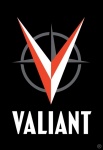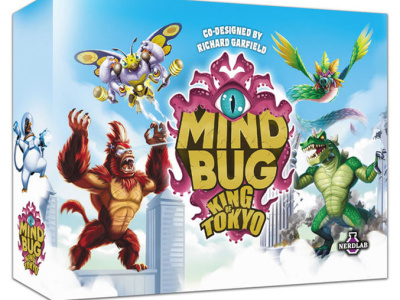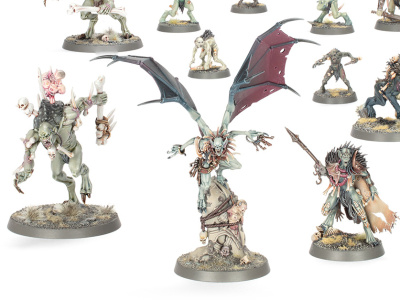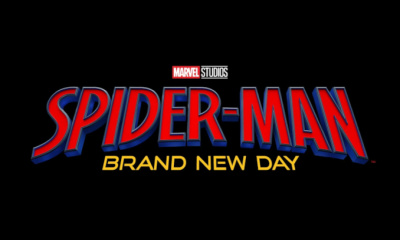 We interviewed Valiant Entertainment executives CEO/Chief Creative Officer Dinesh Shamdasani, Publisher Fred Pierce, Executive Editor Warren Simons, and Director of Marketing, Communications, and Digital Media Hunter Gorinson. In Part 2 of this three part interview, we talk about Valiant’s biggest reorder titles, the use of variant and enhanced covers, and the Valiant universe. In Part 3, we talked about the state of Valiant’s movies, licensing, and the company’s summer releases. And in Part 1, we talked about Valiant’s first two years and its graphic novel business.
We interviewed Valiant Entertainment executives CEO/Chief Creative Officer Dinesh Shamdasani, Publisher Fred Pierce, Executive Editor Warren Simons, and Director of Marketing, Communications, and Digital Media Hunter Gorinson. In Part 2 of this three part interview, we talk about Valiant’s biggest reorder titles, the use of variant and enhanced covers, and the Valiant universe. In Part 3, we talked about the state of Valiant’s movies, licensing, and the company’s summer releases. And in Part 1, we talked about Valiant’s first two years and its graphic novel business. Circling back to the periodical business, what are your reorders looking like? Which books are the ones that retailers have been underestimating and needing to reorder?
FP: We’re finding that reorders are more local than massive. We’ve finding big reorders on Rai and on X-O and Harbinger, especially on X-O these days. The retailer buys to sell out and he buys to sell out quickly, and then he find he has more readers or has readers who say "order the book, and I’ll take it." Our issue is, the retailer is going to Marvel and DC, then Image, and a whole slew of publishers, and we have to break through that, so we’re often under-ordered and they’re often then going back. On some books lately we’ve had to go back to second prints.
Hunter Gorinson: I would also note that in tandem with the rollout of #1 titles that compose the Valiant First initiative we’ve also implemented a series of very strong sales incentives, including returnability for all of the #1 titles.
DS: We do a larger overprint on the first run than other publishers do, and we do that because we know that people will read the book and they’ll like it. Retailers are conservative because they don’t know how the book is going to be received. But we are very confident in our books, and we generate a larger overprint and that gets eaten up. So when you hear second print from us, it usually means that we’ve burned through a larger overprint that other publishers and then hit a second printing. Rai actually looks set to go to a third printing very soon. It’s been really well received.
FP: What we also found is that a lot of the retailers are of an age where they grew up and they were Valiant fans early on. They’re much more likely to hand-sell our stuff. What we like is that if somebody orders, we find that a lot of the retailers do tend to push our stuff more.
Fred, you have been in this industry for a long time. What is your take on the current use of variant or enhanced covers as a percentage of the business vs. the situation in the 1990s? Are you concerned?
FP: I’m not concerned because the market regulates itself. We offer a product. The second a retailer doesn’t want the product, he doesn’t buy it. The second the fans don’t want the product, they don’t buy it. You’re looking at the things on a shelf. Our next reader is someone who is reading something else, probably a Marvel, DC, Image, Dark Horse, or Dynamite reader. So when he’s looking at that other book, I want him to look at our book. If it’s enhanced covers that does it, that’s great. If it’s an oversized book, that’s great. We’re about to launch chromium (see "Chromium Covers for 'Armor Hunters'"). That will jump at a reader from across the room. It was a wonderful product in the day. People still talk about it, and whenever you talk to a retailer about chromium, they smile.
No one’s forcing anyone to do enhanced covers. The readers want it, so the comic shop owners buy it. The second readers don’t want it, we’ll stop doing it.
DS: Fred has told me that part of the problem in the 90s was when you had books that were an enhanced cover and that’s all they were. We’re very cautious and very conscious of that and only put enhanced covers on books we really believe in. We always come to the story first, and the art and creative team second, and then we come to how can we now sell [the book]. Fred has told me many times that one of the reasons there was this influx of gimmick covers in the ‘90s was (this was before the prevalence of renumbering where you could get someone on the books because you had a #1, back when you had 300, 400, 500 issues of the title) how do get someone to jump onto a book? You reach out to them from across the room. The difficulty is just to make sure that when you do reach out to them, that the book is good. So we try very hard to do both.
The first chromium covers are coming out in June and you had to set runs before you had orders in. What are the numbers looking like for those?
FP: The first three books are in June. The numbers are doing very well. We’re still garnering sales. We’re right where we thought we would be.
Meaning you’re not at an allocation point yet?
FP: No, we didn’t print to allocate. That’s not the purpose of this exercise. The purpose of this exercise is to get our book into as many readers’ hands as possible. The hope is once they read one Valiant book, they’ll try other Valiant books as well.
DS: We saw big jumps on all three books with chromium. We saw retailers coming in and really supporting the chromium program, which is really nice. The allocation warning was something we had to do in case the demand was absolutely bonkers. (We printed to make sure we had enough stock, but in case it was absolutely bonkers.) We said it up front knowing that a publisher in the last 12 months has had similar problems and it was quite an ordeal for them. We just wanted to make sure that in case anything happened (and we may still see something like this when we hit FOC and sell-through) that we included an allocation warning.
On the periodicals side, do all of your titles exist together in the Valiant universe?
WS: We operate in a shared universe, but one of the main things I try to do on every book that I edit is make sure that it is as accessible as possible and I can hand the book to someone who doesn’t necessarily read our universe and will be able to walk away with a clear understanding of what‘s happened. Some might say that’s low-hanging fruit, but you’d be surprised at how many times you pick up a book and you have absolutely no idea what’s going on.
So we do operate in a shared universe but we also have different genres within that universe: Harbinger’s a teen drama; X-O Manowar is a sci-fi book; Quantum and Woody is a comedy.
DS: We build every book to be individual and then if you’re reading everything there’s a larger tapestry that you get to see, which is a lot of fun.
Click here for Part 3.







